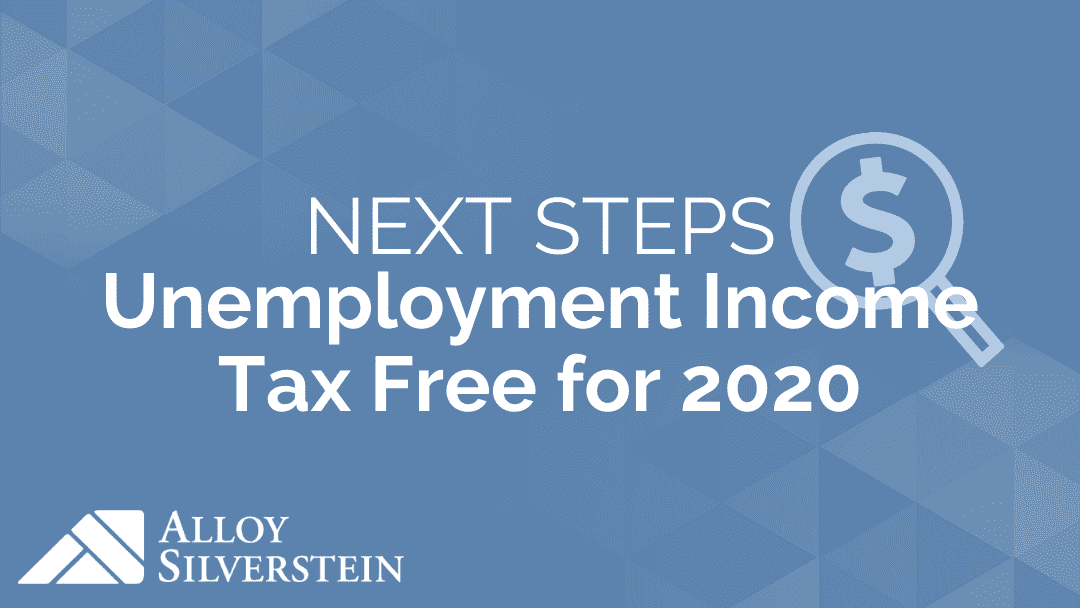
A surprise tax break for 2020 was passed into law in March’s American Rescue Plan Act. It may impact your situation if you received unemployment income this past year.
Unemployment compensation was received by millions of Americans during the pandemic and was enhanced by last year’s CARES Act.
But there’s a Catch 22 with unemployment compensation. While it’s welcome income during a tough time if you’ve lost your job, it’s also classified as taxable income to be reported on your tax return.
The recently passed American Rescue Plan now makes part of your unemployment benefits free from federal taxation. Specifically, the first $10,200 of 2020 unemployment compensation is now tax free. Depending on your tax bracket, this tax break could mean $1,200 or more in taxes saved on your 2020 return.
However, just because this unemployment income is not taxed, keep in mind that it is still included in your modified adjusted gross income which can impact the taxation of other provisions.
The new legislation which contains this tax break unfortunately didn’t become law until March of 2021 in mid-tax season, a full three months after the end of the tax year and after millions of Americans had already filed their 2020 tax return! And to make matters worse, the IRS has been given no time to figure out how this tax break will be reported on 2020 tax returns.
Note: As of March 31, 2021, the IRS has released guidance stating they will be recalculating unemployment benefits for anyone who already filed their tax return and claimed unemployment benefits as taxable. The IRS will be automatically sending refunds or will apply the refund to taxes owed beginning in May. Click here for more information.
If you received unemployment compensation in 2020, here’s what you need to know:
Wait for further instructions. Lawmakers are currently asking the IRS if it’s possible to automatically make adjustments and issue a refund if you’ve already filed your 2020 return. Issuing an automatic refund will also avoid the need to file an amended tax return. So there is no need to call the IRS, we can only wait for clarification. Filing an amended return is not recommended as it will confuse the system.
Filing your tax return will be delayed until guidance is received from the IRS and it is deployed into tax filing software. It’s unclear when the IRS will issue this guidance. Once this guidance is received, delayed tax filings can proceed. In the meantime DO NOT delay turning in your tax information as returns can still be prepared and be ready to be filed once IRS guidance is received.
With all of these new changes and the urgency of getting out Economic Impact Payments, the IRS has officially postponed the April 15 tax deadline to May 17, 2021. However, they still encourage tax payers to file their 2020 tax return as soon as possible, especially if expecting a refund.
Be assured you will be informed once the IRS issues further instruction on how to claim your tax break. In the meantime, enjoy the extra tax savings you’ll get sometime in the near future.
Empowering business owners and individuals in South Jersey and Philadelphia to feel confident through proactive accounting and advisory solutions.